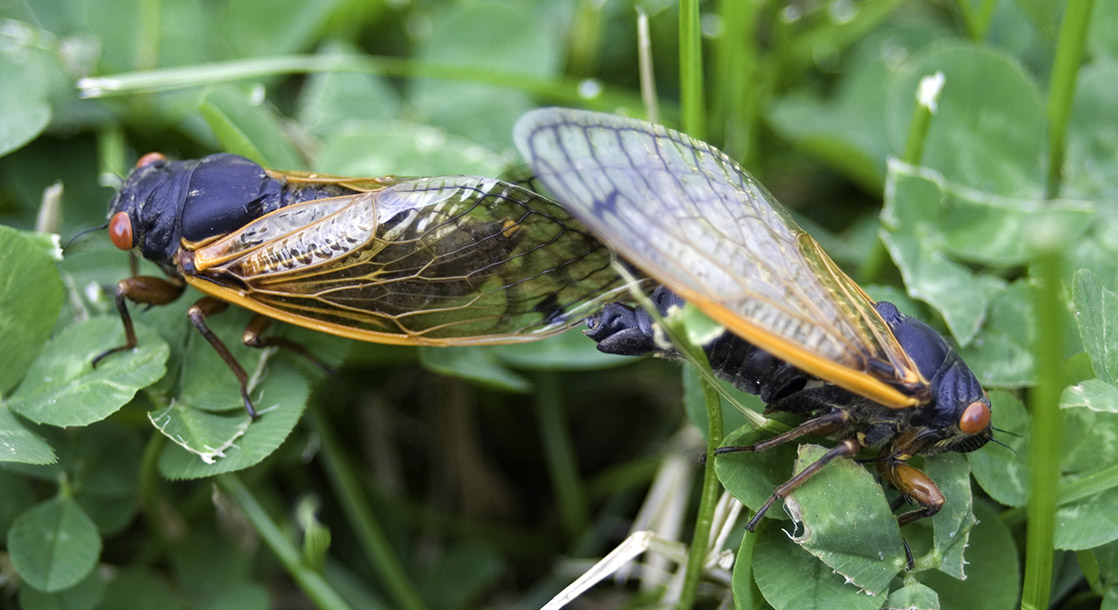Photo by All-Kindz-A Photography
Researchers from West Virginia University have recently discovered a fungus that can transform cicadas into sex-crazed “zombies” by getting them high on hallucinogens and amphetamines.
A new study published in Fungal Ecology reports that Massospora, a parasitic fungus that infects cicadas, can produce psychoactive compounds that help the infected hosts spread the infection. Cicadas can become infected with this fungus underground during their 13- to 17-year dormant stage. The infection begins to spread shortly after the cicadas emerge from the ground to mate, gradually taking control of the bugs as it consumes their bodies.
The infected males engage in “hypersexual behaviors,” attempting to mate with everything that they encounter, spreading the infection to any partners. The fungus will eventually consume the insects’ genitals and abdomens, but the cicadas will continue to mate non-stop, even as their bodies fall apart. Matt Kasson, assistant professor of forest pathology at WVU and co-author of the study, likens the infected bugs to “zombies” because “the fungus is in control of their bodies,” WVUToday reports.
The Massospora fungus uses an unusual method to make these bugs do its bidding. The fungus secretes psilocybin, the hallucinogen found in magic mushrooms, as well as cathinone, an amphetamine naturally found in the leaves of the khat plant. Researchers speculate that the latter of these two drugs can help give these insects the stamina to continue mating even as the fungus eats them alive.
One of the most interesting takeaways from this study is the fact that this is the first time researchers have discovered that a fungi other than mushrooms can produce psilocybin. This is also the first time that researchers have discovered a fungus that can produce amphetamines. Researchers were unable to discover exactly how Massospora is able to create these substances, as the fungus does not contain the enzymes that other plants use to synthesize these compounds.
This discovery may have implications beyond the realm of insects. The study reports that “culturable fungi have yielded many antimicrobial drugs, medications, and industrial enzymes over the last century.”
Kasson said that his fellow researchers “anticipate these discoveries will foster a renewed interest in early diverging fungi and their pharmacologically important secondary metabolites, which may serve as the next frontier for novel drug discovery.”
Some readers are probably already wondering if you can “quiktrip” – getting high by combining psilocybin with amphetamines – from licking an infected cicada. Kasson told WVUToday that it may indeed be possible “if you’re motivated enough.”
However, the professor explained that these psychoactive compounds were only two out of around a thousand other compounds discovered in these infected bugs.
“Yes, they are notable, but there are other compounds that might be harmful to humans,” Kasson cautioned. “I wouldn’t take that risk.”











